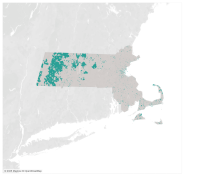More and more cities are turning to public-private partnerships (PPP's) in building Internet networks that meet the needs of 21st century homes and businesses. If a city builds its own fiber and leases it to a trusted partner, they can negotiate for activities that benefit the public good, like universal access.
In this video Christopher Mitchell interviews Dr. Robert Wack with Westminster, Maryland and Elliot Noss, CEO of Tucows, the parent of Ting. The two talk about their revolutionary public-private fiber partnership.
The video outlines a basic economic principle: "Ownership equals control, and control means leverage." If you don't have that leverage (such as ownership of infrastructure) you won't get a good deal from your private ISP.
Noss has long been active in preserving and expanding the open Internet. Dr. Wack is a city council member and driving force behind the open access fiber network partnership.
For a much more detailed look at public-private partnerships, check out our guide: "Successful Strategies for Broadband Public-Private Partnerships". The term "public-private partnership" has been muddied in the past. The report clears up the confusion: public entities and private companies must both have "skin in the game" to balance the risks and amplify the rewards.







